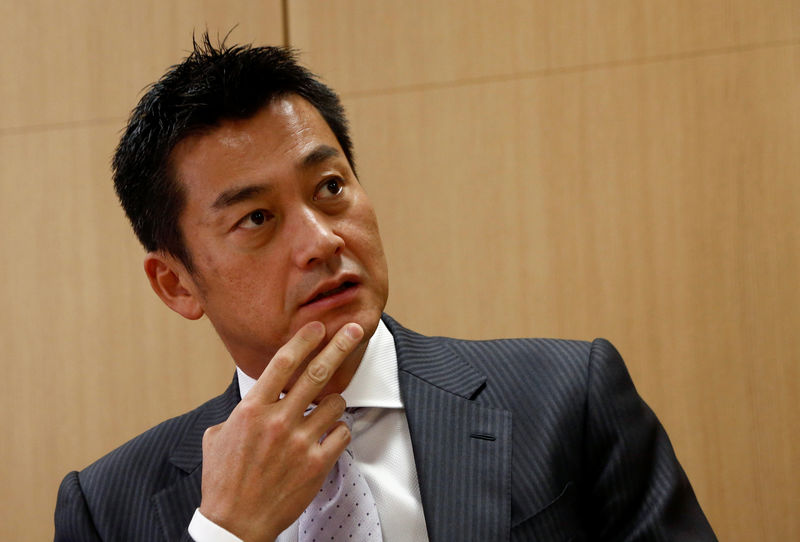By Tomo Uetake and Hideyuki Sano
TOKYO (Reuters) - Japan Post Bank (T:7182) is slowly returning to the U.S. bond market after yields spiked following the U.S. election, although the bank sees yields rising further later this year, its chief investment officer said on Thursday.
The Japanese bank is starting to rebuild its exposure to U.S. bonds, which it had been reducing most of last year, as yields have risen sharply since November, Katsunori Sago, the bank's CIO told Reuters.
Japan Post Bank, with total assets of 210 trillion yen ($1.85 trillion), has been an outlier among Japanese investors who had been gobbling up U.S. and other foreign bonds last year as an alternative to low-yielding domestic bonds.
Thus it avoided heavy losses other investors suffered after U.S. Treasuries tanked on expectations that U.S. President Donald Trump's tax cuts and fiscal spending would boost inflation and economic growth.
"We are starting to take some risks in interest rates," Sago said, adding the bank expects the 10-year yield (US10YT=RR), now at 2.48 percent, to rise to around 3.0 percent by the end of this year.
Sago also confirmed market speculation that the bank made chunky profits by betting on the dollar's rise in the last quarter, though he added the decision was based on its view of economic fundamentals and not because it foresaw a Trump victory.
The bank reduced currency hedging on its foreign bonds by about three percentage points, meaning dollar buying of around 1.5 trillion yen ($13.2 billion) in September/October, before taking profits later in the final quarter, Sago said.
"We thought the dollar was a bit too weak when it was near 100 yen. We did not necessarily think the dollar rose because of Trump. The dollar would have risen whoever had won the election," he said.
Sago also said the dollar was likely to rise, possibly towards 120 yen by the end of the year, from around 114 yen
When the dollar edges up to that level, the Bank of Japan is likely to raise its 10-year bond yield target, and possibly end its negative interest rates, he added.
The BOJ is guiding the 10-year JGB yield
Sago said a border tax plan being floated by the Trump Administration will be a key issue for the dollar and markets.
Republicans are considering a border adjustment tax, which would exempt U.S. corporate export revenues from tax but impose a 20 percent levy on imports, to boost domestic industries.
"If we have a border tax adjustment, the dollar will soar. But that doesn't mean Japanese share prices will gain. We could have the dollar at 140 yen and no growth in car exports or even decline in car exports," he added.

($1 = 113.5900 yen)